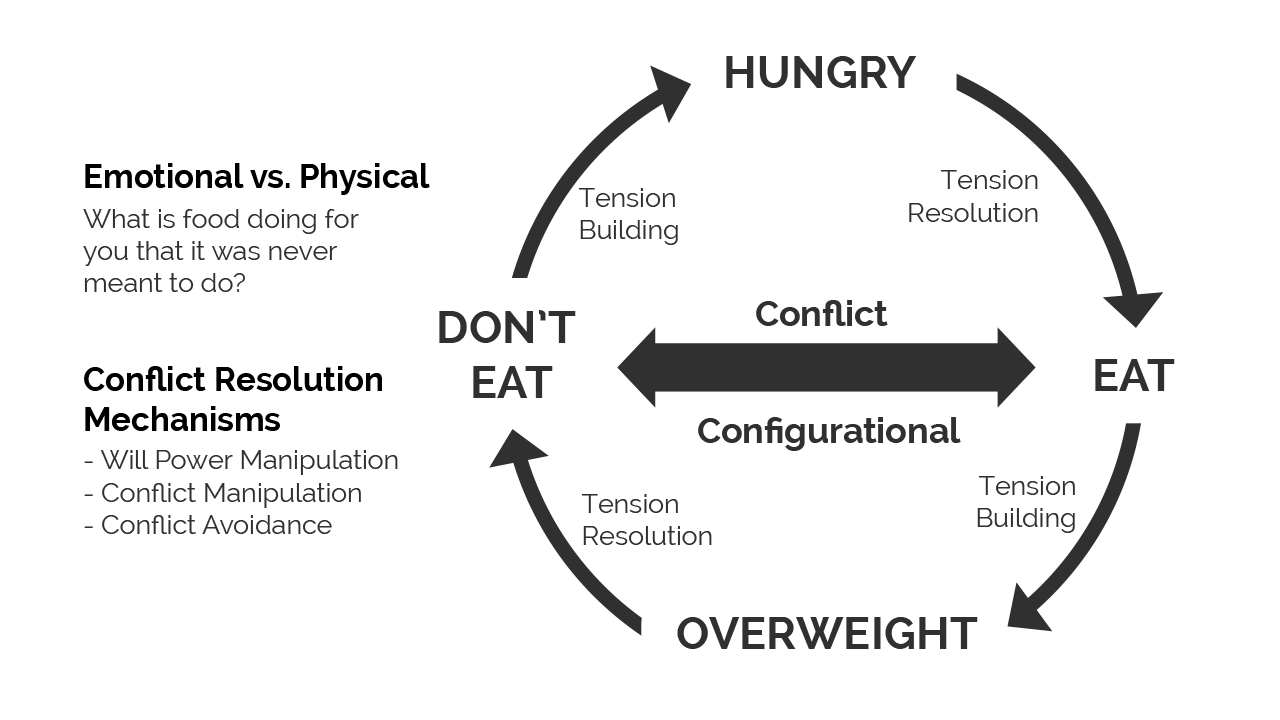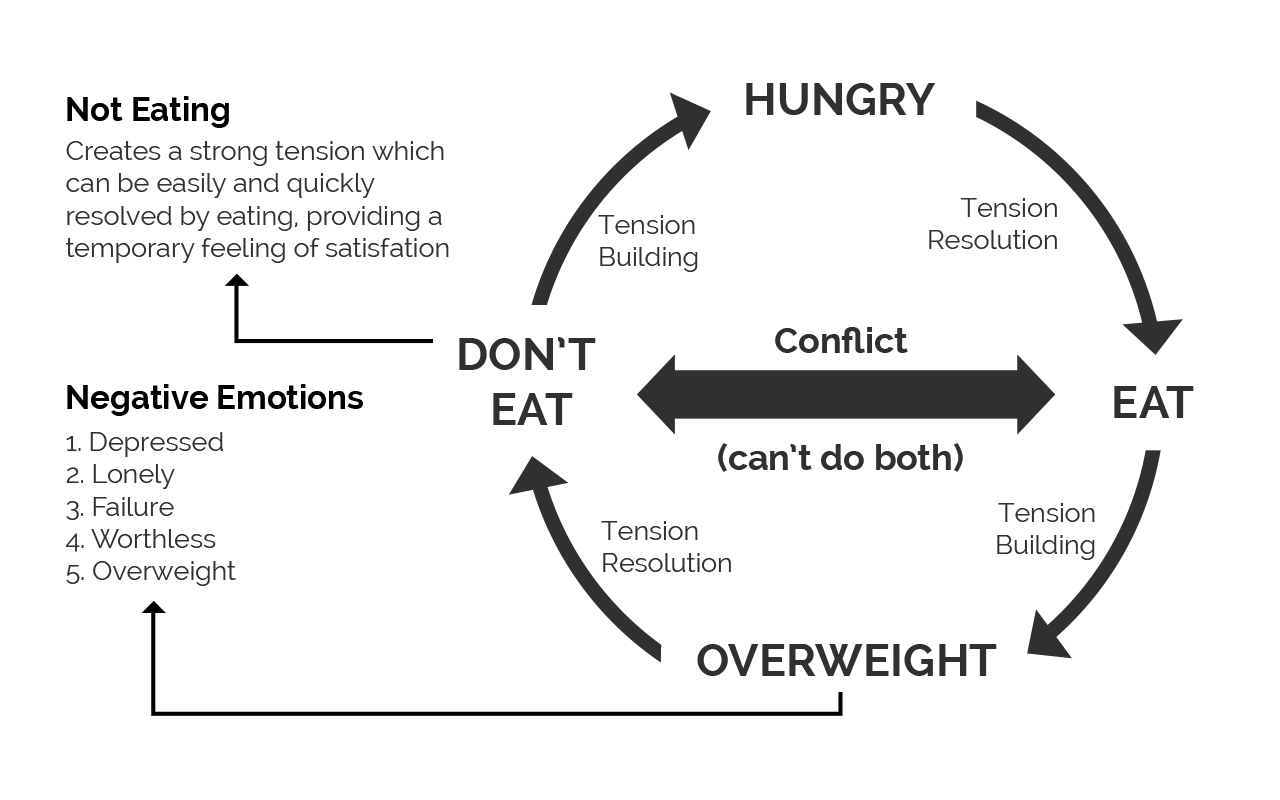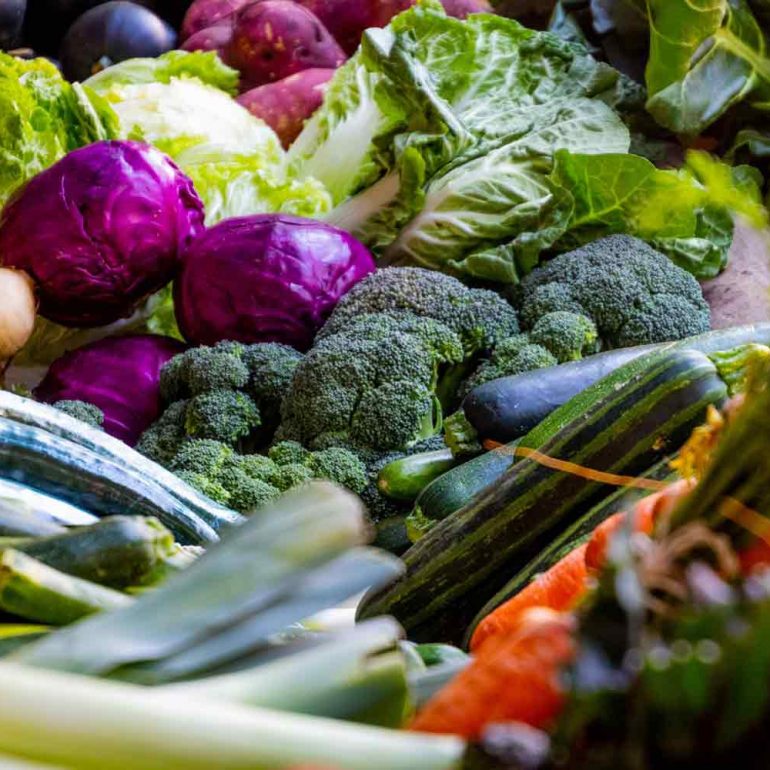Your most intimate, personal and permanent relationship is with food. That is why it is crucial that we learn to eat consciously for lasting health. Food is your constant companion from the day you are born until the day you die. Therefore, it is important that this relationship is a healthy one. For most of the population, it is a relationship filled with conflict. More than 74.1% of Americans are overweight or obese. In every other relationship when you experience conflict, you can disengage. You can withdraw from people, society, work, and church, but you are intimately and permanently locked into a relationship with food.
For obese people, food is the only dependable relationship in their life. Food is always there, fills an immediate void, and is satisfying and enjoyable. Sadly, for many, food is their only consistent relationship. Food is not designed to be your friend, end loneliness, treat anxiety, cure depression, or quell boredom. Since a relationship with food is vital, achieving your ideal weight is a tremendous opportunity for personal growth. Creating a healthy relationship with food will transform your relationship with life. Conscious eating encourages you to look at every aspect of who you are and why you do what you do. Being awake to what you put into your body is critical to your health, energy, finances and relationships. Scientific studies have provided irrefutable evidence that eating less, while maintaining proper nutrition, is the single most beneficial thing you can do for your health and longevity (Dr. Roy Walford).
Food and energy are partners. Does the food you eat give you energy, or does it make you feel tired and bloated? After you eat, do you feel more, or less energized? The critical first step in conscious eating is to observe your thoughts, feelings, and actions around the entire eating process (see Conscious Thinking to assist you with this process). Overeating is usually an unconscious choice. It is crucial that you become aware of your eating strategies.
There are multiple layers to unconscious eating – getting to them is like peeling an onion. For instance, how much do you eat and why? When do you eat? Do you eat fast or slow? Do you only eat when you are hungry, or do you eat at specific times of the day? Do you eat for emotional reasons, or is it only for actual physical hunger? Do you stop when you feel full, or do you always finish your plate? Is eating a social/family activity? Do you notice the effects different types of food have on your energy and mood?
Conscious eating can become an overwhelming task. Let’s take some easy first steps towards mindful eating. Remember, transforming your relationship with food will enhance your relationship with life.
For many, overeating is the most difficult personal challenge. Negative emotions create a sense of emptiness (void). Food fills this emptiness quickly, easily and predictably. Unfortunately, it creates a deeper void that must be filled with more food. This addictive pattern creates the downward spiral of unconscious food addiction (see diagram one, below). To transform your relationship with food, you must transform your relationship with life. This is why weight loss programs do not work. Experts estimate that diets have a 97% to 99% failure rate, and this can be dangerous to your health. Many people gain weight on a diet, or gain all the weight back plus more, once they are off said diet. (Definitive Guide to Alternative Medicine)
Conscious eating is the first step toward correcting your relationship with food. Be aware of your thoughts, feelings, and actions before, during, and after you eat. Watch your self-talk (internal dialogue). What are you saying to yourself before, during, and after you eat? Watch how different emotional states affect your eating. Notice the times of the day you eat. Is eating primarily a social activity, or a health activity? Eat only when you are physically hungry and be conscious of why and when you are eating. Become especially attuned to when you are eating for emotional reasons. Eating for emotional reasons is always an unconscious process. Food will make these feelings worse in the long-term and perpetuate the problem.
Wallace D. Wattles has some suggestions about healthy eating. He recommends eating slowly, chewing your food until it liquefies in your mouth, and setting your utensils down between bites. Take notice of how you feel 15 and 30 minutes after eating this way. You should have more energy, not less, and you should feel alert, not tired and bloated. Get into the details. This may sound like a drag, but it is always fascinating to learn about your favorite topic: you.
Let’s take the real-life example of a person who eats a pint of Haagen-Dazs every night and help them get conscious around the experience. Put yourself in this person’s shoes for the next couple of minutes. What triggers you to get out of your warm chair, go out in the cold, and go to the store to buy the ice cream? Are they physical cues or are they emotional cues? What is your internal dialogue on the way to the store? What are your thoughts while you are eating? Are you watching TV in a trance, or beating yourself up in advance about overeating again? Do you eat half the pint, or the whole thing? And why? What makes you stop? How do you feel 15 to 30 minutes after eating it? Are you thirsty? How do you sleep that night? Ice cream is a good tool for conscious eating. It has the highest “osmolality” of any food, which means the ice cream molecules are so big and difficult to digest; they cause you to draw significant amounts of water into your intestines. This assimilation process dehydrates you and interferes with sleep patterns and digestion. This is the effect of just one common food group. Potato chips are another food source that has a significant impact on your body. They contain a lot of salt that dehydrates you, as well as saturated fats that are hard to digest, which makes you sluggish. Chips also contain simple carbohydrates which affect energy and create inflammation. Try not to sleep on a bag of potato chips – it may not be a good night.
The following are some helpful insights on conscious eating:
There is nothing intrinsically wrong with eating ice cream, potato chips or any so-called junk food. Our goal is to learn about ourselves – to become more aware of who we are and why we do things. Conscious eating may be your best tutorial toward this aim.
When you are conscious, you will not hurt yourself. Take the concept of right and wrong out of the equation when it comes to eating. There is nothing wrong with being 10-20, 30-40, or 50 pounds above your ideal weight. There are two questions you must ask yourself: Is this creation a conscious one, and is it consistent with my vision for my life? Never beat yourself up or judge your actions regarding eating, or any conscious discipline. Awareness can radically alter eating patterns. The best way to move forward is to create a compelling health vision.
Your vision is the standard by which you become a conscious eater. “It is (date), and I am thin, in shape, healthy, and an energetic 120 pounds.” Now that you have a clear vision, ask yourself: Is this food consistent with my vision or not?
Conscious Eating Overview
The Complex Cycle of Overeating: The desire to eat and not eat at the same time creates a configurational conflict pattern that promotes crash dieting followed by binge eating… This pattern must be reconfigured for any lasting health to exist.
Become conscious around the entire eating process. Become aware of why you are eating, when you are eating, and how much you are eating. Monitor your emotional states before, during, and after a meal. Pay attention to what stimulates you to start eating and what signals you to stop. The goal here is insight. It is critical to the process that you never beat yourself up; it will slow you down. If you learn something, you are making progress. When you act inconsistently with your vision, see it as an opportunity to gain insight. A helpful tool is to plan your meals and keep a log. Weighing yourself regularly keeps you in touch with reality.
Your weight is a number you cannot argue with. Never attach a negative meaning or question to that figure. If you are 50 pounds over your ideal weight, never ask yourself a limiting question. For instance, why am I so fat, or why can’t I lose weight? These questions prolong and worsen the problem you are trying to solve. Never use your weight or this process as an excuse for self-recrimination. Take all the emotion out of it and just learn. You will gain the insight you need to be thin, in-shape, healthy, and energetic for life.
Dr. Steven Cangiano began his college career with aspirations to become a high school teacher. These aspirations took a turn when he decided to follow in his father’s footsteps and go into the field of podiatric surgery. He completed his medical school training at Temple University and his surgical residency at the NY College of Podiatric Medicine where he was chief resident. He continued his academic career and fulfilled his early teaching aspirations by becoming an assistant professor of surgery at the age of 27. He was board certified in foot and ankle surgery at the age of 28. As residency director of the Franciscan Health System of NJ, Dr. Cangiano grew the program into the largest in NJ. Dr. Cangiano published multiple articles in medical journals and spent a total of thirteen years in academic medicine before venturing off into the world of complementary medicine.






